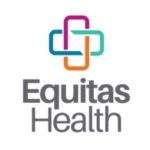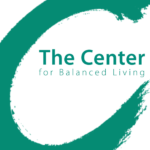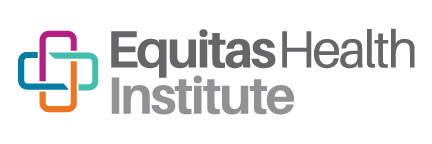About Equitas Health Institute
The Equitas Health Institute is the education, research, and community engagement arm of Equitas Health, focusing on reducing health disparities in the lesbian, gay, bisexual, transgender, queer, questioning (LGBTQ+) community. We do this by developing and delivering exceptional LGBTQ+ culturally competent education and training in healthcare and corporate settings, engaging with LGBTQ+ people, working with community based organizations, and supporting LGBTQ+ health research efforts in our region.
Our work with the LGBTQ+ community encompasses all sexual and gender minorities including, but not limited to, those who identify as pansexual, asexual, gender non-conforming, non-binary, and intersex.
Why Cultural Competency & Cultural Humility Matter
Cultural competency builds knowledge, awareness, skills, and capacity to identify, understand, and respect the unique beliefs, values, customs, languages, abilities, and traditions of all people in order to provide effective programs and services.
The Equitas Health Institute education, trainings, and consulting services push beyond cultural competency and into cultural humility. Cultural humility is an important tool for tackling issues of health disparities and health inequities in the LGBTQ+ community; it is a lifelong process and commitment to self-evaluation, self-critique, learning, reflection, and working in partnership with those belonging to a culture different from one’s own. Culturally humble institutional practices, policies, paperwork, client interactions, treatment plans, social services, etc. pave the way for the best possible health outcomes for LGBTQ+ people, people of color, and other medically underserved populations.
The need to develop culturally humble practices exists across professions.
For health care providers, cultural humility includes recognizing and addressing power dynamics in any provider patient/client relationship. To improve the overall safety and quality of care, organizations should aspire to meet the unique needs of their patients – patient by patient. Addressing patients and clients from a place of cultural humility increases overall engagement and retention in care, resulting in better health outcomes.
For those in the corporate setting, cultural humility offers a framework for re-evaluating practices in hiring, personnel policy, employee benefits, marketing, and customer relations. Creating a culturally humble work environment is key to attracting and maintaining employees and consumers of color and from LGBTQ+ communities.
We Approach LGBTQ+ Health through a Systems Lens
We believe that health does not exist in a bubble. LGBTQ+ health encompasses an overlap of biological and social systems that affect the unique quality of life that does not resemble that of majority culture. By using a systems lens, our research does not just explore health as something static and unchangeable. On the contrary, there are several systemic factors, some obvious and some beyond our control, that are unique to the LGBTQ +community that have not received adequate rigorous and timely research. At Equitas Health Institute, we do not reduce LGBTQ+ to a monolithic group resistant to having positive change. Each group represented in the LGBTQ+ community has its own unique characteristics and cannot be approached in the same way. We find it important to explore and report the complex interactions and surroundings that make the entirety of LGBTQ+ health worthy of urgent attention.
What Folks Are Saying …
-

“The entire training series was phenomenal. Coming in, I was already confident in my ability to be an ally, but I still learned so, so much. I honestly believe this training should be mandatory for everyone.”
Medical Mutual of Ohio employee
-

“I recommend staff participating in this training more than once: at new hire orientation, and then again after they have spent time on the job.”
Equitas Health Medical Center employee
-

“Ramona is an incredible speaker – engaging, clear, and thought-provoking. A Friday seminar is a hard slot to take, but she did an amazing job, and I would stay late every Friday to hear more of what she has to say.”
Center for Balanced Living employee
